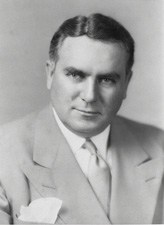A Quote by Donald Norman
Our information lives will be better served when we are free to get to our information from wherever we are, with any device available.
Related Quotes
Healthy areas that are richest in information are those areas in the wild where we can get all the information that's available to us within our human hearing range. The most valuable information throughout human evolution has been faint sounds. We tend to think in our modern world that if it's loud, if it grabs our attention, it's important. We get a lot of that in advertising. But in nature, it's the faintest sound that's important; it has determined, in the past of our ancestors, perhaps, if they will live or die. Faint sounds are the earliest clues of newly arriving information.
The experience of a century and a half has demonstrated that our system of free government functions best when the maximum degree of information is made available to our people. In fact, free and candid discussion of vexing problems is the bedrock of democracy and it may be our surest safeguard for peace.
If the government is to try and ban private consumption of alcohol and tobacco, it must surely ban such activities as hang-gliding, skiing, rock-climbing and so on. Where should it stop? Rugby? American Football? Ice Hockey?
Insofar as the government has information not generally available about the merits or demerits of the items we ingest or the activities we engage in, let it give us the information. But let it leave us free to choose what chances we want to take with our own lives.
Data isn't information. ... Information, unlike data, is useful. While there's a gulf between data and information, there's a wide ocean between information and knowledge. What turns the gears in our brains isn't information, but ideas, inventions, and inspiration. Knowledge-not information-implies understanding. And beyond knowledge lies what we should be seeking: wisdom.
All of the insights that we might ever need have already been captured by others in books. The important question is this: In the last ninety days, with this treasure of information that could change our lives, our fortunes, our relationships, our health, our children and our careers for the better, how many books have we read?
Money and prices and markets don't give us exact information about how much our suburbs, freeways, and spandex cost. Instead, everything else is giving us accurate information: our beleaguered air and watersheds, our overworked soils, our decimated inner cities. All of these provide information our prices should be giving us but do not.
Information wants to be free.' So goes the saying. Stewart Brand, the founder of the Whole Earth Catalog, seems to have said it first.I say that information doesn't deserve to be free.Cybernetic totalists love to think of the stuff as if it were alive and had its own ideas and ambitions. But what if information is inanimate? What if it's even less than inanimate, a mere artifact of human thought? What if only humans are real, and information is not?...Information is alienated experience.





































